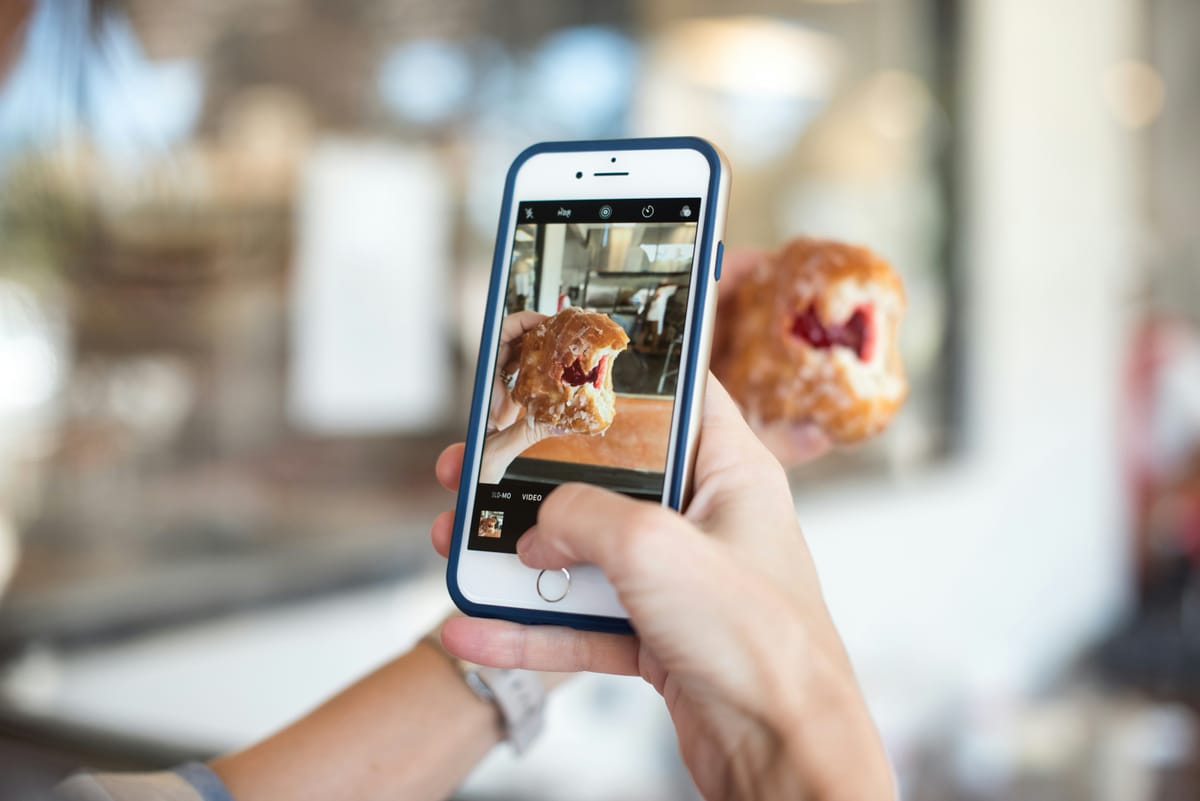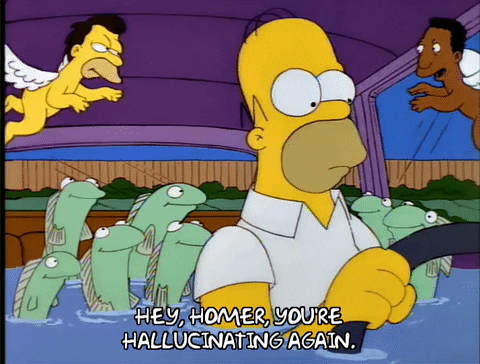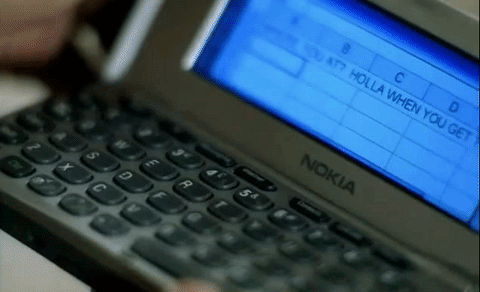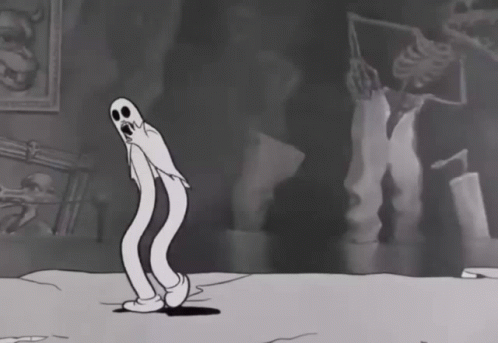A Culture of Indiscriminate Over-Sharing
It's a vicious cycle we unknowingly perpetuate and one that we desperately need to break.

Recently, after having a conversation with my close friend, Dave, and after watching Sherry Turkle and her TED Talk, Connected But More Alone?, I have realized that we live in a culture of indiscriminate over-sharing.
Let me explain.
What I mean by a culture of indiscriminate over-sharing is that not everything you post from status updates to photos is relevant or necessary. Do your friends really care about seeing the 200 photos of you and architecture from Europe, or the 300 photos you’ve taken of your food with a million filters applied? The answer is simple: no, no they do not. Not everyone needs to know, nor cares, whether or not you can sleep, if you’re at the bar with your friends, or if you hate the new layout of the social networking site that you’ll continue to use.
After coming to that realization, I began thinking; how did that process even begin, and it’s incredibly simple — it started with ourselves. Humans, by nature, are attention seeking, and we’re always looking for ways to one-up our peers. We see our friends and their amazing escapes around town, and sometimes the world, and we feel compelled to show that our lives are just as exciting. Susan Cain, in her TED Talk, The Power of Introverts, says:
“It turns out that we can’t even be in a group of people without instinctively mirroring, mimicking their opinions. Even about seemingly personal and visceral things like who you’re attracted to, you will start aping the beliefs of the people around you without even realizing that that’s what you’re doing.”
Cain makes the argument that it’s a vicious cycle that we unknowingly perpetuate, and how it’s a cycle in which we need to break.
This isn’t just specific to Facebook; a recent study showed how nearly 40% of tweets were pointless babble from saying how much fun people had last night at that party in which they got SOOOOO wasted, or how they’re at 10,000 tweets! But, if you look, how many of those tweets were of any real importance that made people want to read more, think, and get engaged? Barely any, so much so, that almost 75% of all tweets go unread. Google+ is a unique networking site, because almost as an unwritten rule, you do not have people clogging up their “newsfeed” with one million photos of food, status updates, and pointless check-ins.
I’ve been a long time advocate of not being on Facebook. When the site originally launched, and had the VIP status of being associated only with top tier colleges and universities, it made sense. This was before advertising and the site in general opened up to the general pubic world-wide; it was the discussion between you and your classmates that kept you logging in every time, and not the steady decline to your five buddies clogging up your news feed by checking into the bar down the street. I mean, do we care if you’re at one bar and not the other? Once again, the answer is no.
While sites like Facebook might still hold some relevance, I see it going the way of Myspace very soon as users flock to other networks like Twitter and Google+. As Derrick Wlodarz puts it,
“If Facebook’s loss of 2 million users over the past six months is telling about anything, it’s that the social media craze of yesteryear has peaked — or is even on the slight decline already.”
From what I’ve been able to tell, the main reason as to why people aren’t satisfied with Facebook is due to their horrible privacy settings, and because Facebook continues to abuse it. Yet, what the same user base fails to realize that (pardon my slight anti-Facebook bias) besides Facebook being evil incarnate, they watch the trends of their users and adjust the site accordingly. So, for example, if they see users interacting with each other more than others, those users will see more of each other in their news than anyone else (Eli Pariser, in his TED Talk, calls them Online Filter Bubbles, and tells us to be wary of them). The same goes for with the way they upload information about themselves from personal phone numbers, to their sexual orientation, to photos of them doing kegstands. Facebook sees this indiscriminate over-sharing and once again, adjusts their site accordingly, because it thinks that the users simply do not care. It’s as much the fault of the user base as it is the fault of Facebook (and it’s evil, oh so evil, shenanigans).
Yes, I understand Facebook is seen as a convenient way to stay in touch with people long distance, but there are other ways as well, such as Skype, e-mail, and you know, by using the device you can’t go 5 minutes without; your phone! But, as we continue to make a shift from a world in which we once used online accounts and connections to stay in touch with relevant and important topics of the day and discuss them, to a more me-centric world, I fear that we will lose our ability to be truly social.
As my incredibly good friend Dave said to me,
“This is why we lack privacy these days. Smartphones will do our networking for us, and [not] as much effort will be required on our part to stalk and interact with people. Remember that shitty knock-off Android phone I had? I’m only making the connection now, but it had features I never got around to telling anyone. One was the option to send canned messages, like, “I love you.”…That is both hilarious, and seriously f-cked…it’s an unsettling thought to have in anyone’s head that your significant other’s texts are pre-written, so to speak.”
Dave was completely right, and his sentiments only further echoed what Sherry Turkle said in her TED Talk:
“And what I’ve found is that our little devices, those little devices in our pockets, are so psychologically powerful that they don’t only change what we do, they change who we are…People talk to me about the important new skill of making eye contact while you’re texting. Why does this matter? It matters to me because I think we’re setting ourselves up for trouble — trouble certainly in how we relate to each other, but also trouble in how we relate to ourselves and our capacity for self-reflection. We’re getting used to a new way of being alone together.”
This raises another interesting point; filters. This goes back to Eli Pariser’s talk; I think we like being online because it allows us to create this persona of ourselves in which we can interact with one another without actually having to interact. Another friend of mine once said that she tried online dating, and found that it the people she met in the flesh were different from their online selves, and she faced that same problem too; that she couldn’t live up to this character she had created for herself. This is a huge problem that stems from being online, and being able to edit, retouch ourselves not too much, nor too little, but rather, just right into the people we wish we could be, rather than who we are.
Personally, as much as I live on the internet and use it for almost everything I do, I wouldn’t be surprised if social networking was but simply a passing fad. What I’m more interested in is the world post-social networking.
My father has always told me that within my life time, the world’s most precious commodity will no longer be oil, or anything of material presence, but will shift to our own sense of privacy. Generally, I’d debate him on that, but in this case, I couldn’t agree more.
Links:
Sherry Turkle (TED)
http://www.ted.com/talks/sherry_turkle_alone_together.html
Susan Cain (TED)
http://www.ted.com/talks/susan_cain_the_power_of_introverts.html
Eli Pariser (TED)
http://www.ted.com/talks/eli_pariser_beware_online_filter_bubbles.html
Derrick Wlodarz
http://betanews.com/2012/08/02/why-facebook-and-twitter-will-soon-feel-the-myspace-effect/




